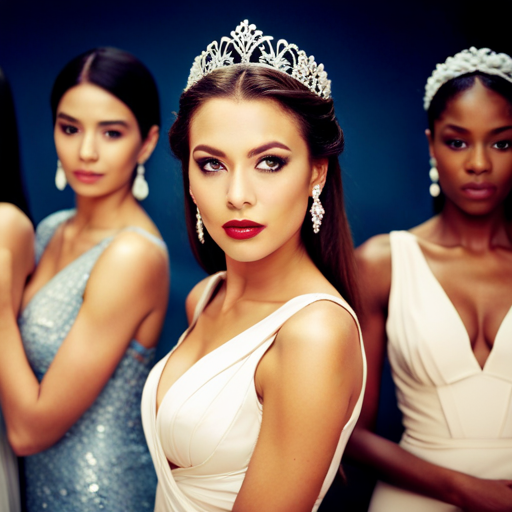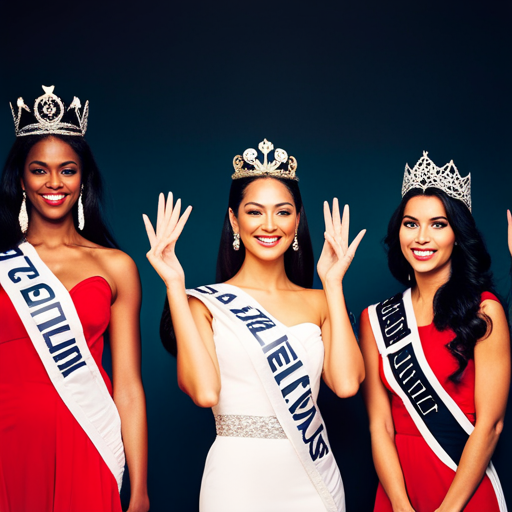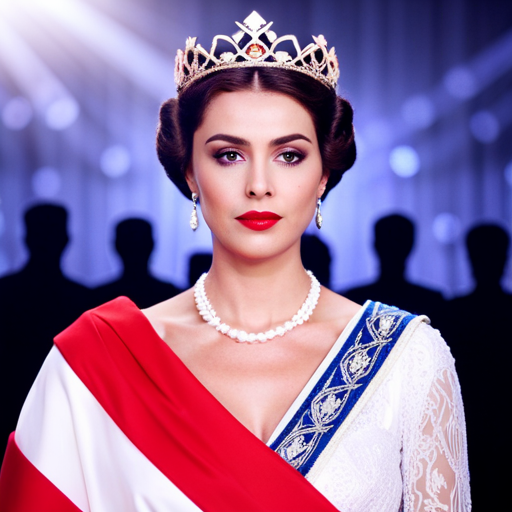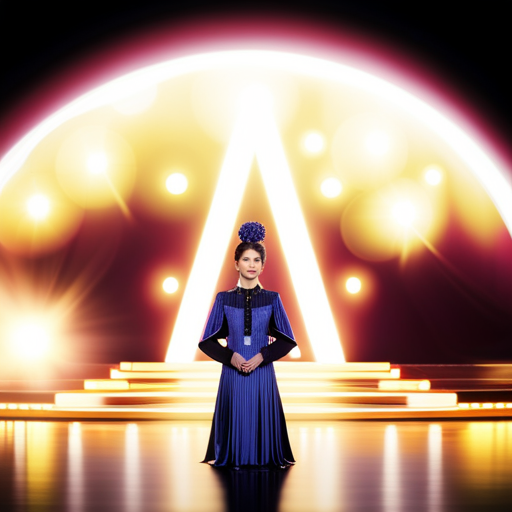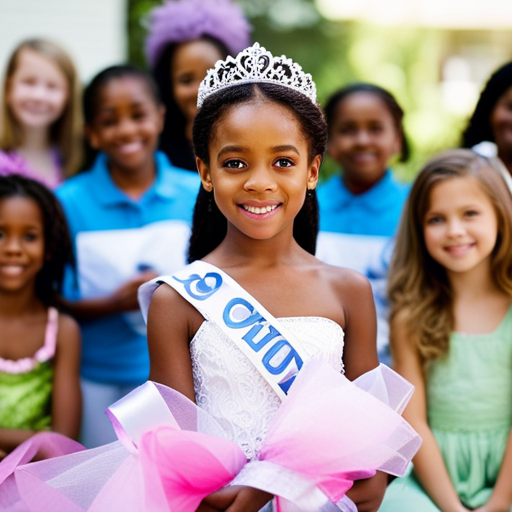Pageant Scandals and Controversies: A Historical Look
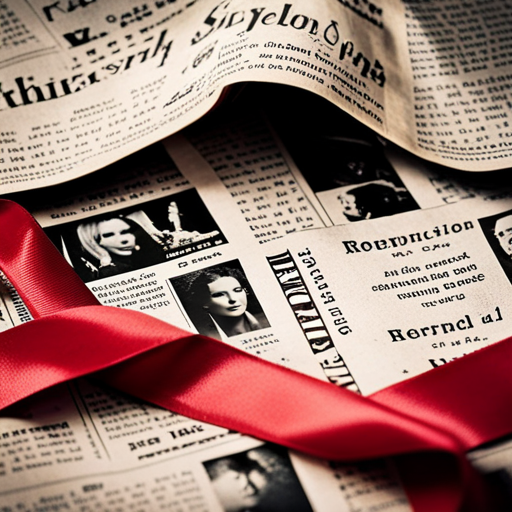
In the world of pageantry, scandals and controversies have woven a complex tapestry throughout history. From the early days of beauty competitions to the present, issues of fairness, ethics, and integrity have sparked debate and scrutiny.
This article delves into the intriguing and often tumultuous history of pageant scandals, examining their impact on the culture of beauty competitions and their enduring legacy in the world of pageantry.
Early Pageant Scandals
In the early years of pageantry, controversies arose surrounding the selection process and the integrity of the judging panel. These issues often centered on the adherence to beauty standards and the lack of gender equality within the pageant industry.
The prevailing beauty standards at the time often focused on a narrow definition of beauty, promoting a specific physical appearance that did not represent the diversity of women. This led to criticism and backlash, as many argued that such standards perpetuated unrealistic and harmful ideals.
Additionally, gender equality was a significant concern, as pageants initially reinforced traditional gender roles and often overlooked the accomplishments and intelligence of the contestants in favor of their physical attributes.
These early controversies prompted discussions and calls for reform within the pageant world, igniting a movement towards more inclusive and empowering competitions. As a result, pageants began to evolve, placing greater emphasis on celebrating the intelligence, talents, and diversity of women, and gradually shifting the focus away from narrow beauty standards and outdated gender norms.
Notorious Judging Controversies
The world of pageantry has seen its share of notorious judging controversies over the years. From allegations of biased judging to concerns about political influence in the judging process, these controversies have often sparked heated debates and raised questions about the integrity of the pageant system.
Additionally, the involvement of celebrity judges has not been without its own share of controversy, adding another layer of complexity to the judging process.
Biased Judging Allegations
Numerous pageant scandals and controversies have been fueled by biased judging allegations, prompting widespread scrutiny of the integrity of the judging process. Allegations of unfair practices and contestant complaints have marred the credibility of pageant judging, leading to public outrage and calls for transparency. Some of the most notorious judging controversies include:
- Allegations of judges favoring contestants with personal connections
- Suspicions of bribery or corruption influencing the judging process
- Claims of judges being swayed by external pressures or influences
- Instances of judges displaying overt favoritism towards specific contestants
- Accusations of judges making derogatory or discriminatory remarks that influenced their scoring
These biased judging allegations have not only tarnished the reputation of individual pageants but have also raised broader questions about the fairness and impartiality of the entire industry.
Political Influence in Judging
Amid the persistently contentious issue of biased judging allegations in pageants, the specter of political influence in the judging process has persistently loomed over the industry. Political interference in pageant judging raises ethical implications, potentially undermining the fairness and integrity of the competition. The involvement of political figures, or their associates, in the selection of winners can lead to suspicions of favoritism and unfair advantage, tarnishing the credibility of the pageant. Such controversies not only damage the reputation of the pageant but also raise concerns about the objectivity and transparency of the judging process. Below is a table summarizing some notorious instances of political influence in pageant judging:
| Year | Pageant | Allegations | Outcome |
|---|---|---|---|
| 2018 | Miss Universe | Political pressure on judges | Winner’s credibility questioned |
| 2015 | Miss World | Political figure’s relative on judging panel | Public outcry and calls for investigation |
| 2012 | Miss Earth | Political donations to pageant organizers | Organizers deny allegations, but public skepticism persists |
| 2009 | Miss International | Government officials influencing judging | Reforms in judging process demanded |
The influence of political figures in pageant judging remains a contentious issue with far-reaching implications.
The next section will delve into the controversies surrounding celebrity judges.
Celebrity Judge Controversies
Instances of partiality have surfaced in pageants due to the involvement of celebrity judges, raising concerns about the fairness and integrity of the judging process. This has been exacerbated by the prevalence of celebrity endorsements, which has led to ethical implications and controversies.
Some of the notable issues include:
- Allegations of judges favoring contestants with personal connections or affiliations.
- Public outcry over judges promoting their own brands or products during the pageant.
- Accusations of judges showing bias towards contestants who have financial relationships with the judges.
- Concerns about judges lacking the necessary expertise to fairly evaluate the contestants.
- Instances where judges have been found to have preconceived notions or prejudices that influenced their scoring.
These controversies have put the spotlight on the need for transparent and unbiased judging processes in pageants, prompting a deeper examination of the impact of celebrity involvement. This has also raised questions about the potential repercussions for contestants and the integrity of the pageant as a whole.
These concerns have further fueled the scrutiny of infamous title-stripping incidents.
Infamous Title-Stripping Incidents
The act of title-stripping in pageants has been a subject of significant controversy and scrutiny over the years. From breaches of conduct to undisclosed information, there are various reasons that have led to title-stripping incidents in the pageant world.
These incidents have not only affected the crowned individuals but also had a substantial impact on the respective pageants. They have triggered public outrage and raised questions about the integrity of the competitions.
Reasons for Title-Stripping
Several pageant title-stripping incidents have occurred throughout history, prompting scrutiny and debate within the pageant industry. The reasons for title-stripping have had a significant impact on the reputation and integrity of pageant winners, leading to severe consequences for the individuals involved.
Some of the key reasons for title-stripping include:
- Violation of pageant rules and regulations
- Engagement in controversial or scandalous behavior
- Failure to fulfill responsibilities and obligations as a titleholder
- Breach of contractual agreements with the pageant organization
- Discovery of past misconduct or misrepresentation of personal history
These incidents not only tarnish the image of the titleholder but also reflect poorly on the pageant organization, leading to public distrust and a negative impact on the overall integrity of the pageant industry.
Impact on Pageants
Impact on pageants following title-stripping incidents has been significant, leading to heightened scrutiny and public distrust within the industry.
Social media has amplified controversies, making it challenging for pageants to manage their reputation effectively.
Sponsorships have been affected as companies are increasingly cautious about being associated with pageants embroiled in scandals.
Moreover, there has been a reevaluation of beauty standards, with a growing demand for inclusivity and authenticity.
The media representation of pageants has also undergone intense scrutiny, with a spotlight on the ethical and moral dimensions of these events.
Pageants now face the task of rebuilding trust and demonstrating a commitment to transparency and fairness, as they navigate the evolving landscape of public perception and expectation.
Public Reaction and Fallout
Amid infamous title-stripping incidents, public reaction and fallout have reverberated through the pageant industry, prompting heightened scrutiny and a reevaluation of beauty standards. The public outcry has been palpable, with many expressing disappointment and disillusionment with the pageant system.
Media backlash has further amplified these sentiments, as the controversies have garnered extensive coverage, leading to widespread discussions on the impact of such incidents. The reputation of pageants has suffered, and stakeholders are grappling with the need for more transparent judging processes and ethical considerations.
Additionally, contestants and titleholders have been vocal about the need for better support and protection within the industry, signaling a shift towards greater empowerment and advocacy for change.
Scandals in Modern Pageantry
In recent years, modern pageantry has been marred by a series of scandals involving contestant eligibility and biased judging practices. These scandals have raised significant concerns about the judging integrity and beauty standards within the pageant industry.
Contestant eligibility scandals have emerged due to instances where winners were found to have breached the competition’s eligibility criteria, leading to questions about the thoroughness of the screening process. Biased judging practices have also come under scrutiny, with allegations of favoritism and unfair treatment towards certain contestants, casting doubts on the impartiality and fairness of the judging panels.
The controversies surrounding judging integrity have highlighted the need for greater transparency and accountability in the pageant world. Additionally, there has been a growing call to re-evaluate and redefine beauty standards within pageantry, emphasizing inclusivity and diversity.
These scandals have sparked important conversations about the values and principles upheld by modern pageantry, prompting the industry to address these issues and work towards ensuring a more equitable and just environment for all participants.
Impact on Pageant Culture
The revelation of scandals and controversies has prompted a reevaluation of pageant culture and its underlying values. This reevaluation has had a significant impact on the pageant culture, leading to a variety of changes and considerations, including:
-
Reassessment of Cultural Significance: The controversies have sparked discussions about the cultural significance of pageants, leading to a reassessment of their role in society and the messages they convey.
-
Shift in Societal Perceptions: The scandals have influenced societal perceptions of pageantry, prompting a closer examination of the values and ideals promoted within these competitions.
-
Evolution of Pageant Standards: There has been a push for the establishment of higher ethical and moral standards within the pageant industry, encouraging a shift towards more positive and empowering representations.
-
Emphasis on Diversity and Inclusivity: The controversies have highlighted the need for greater diversity and inclusivity within pageants, leading to efforts to broaden representation and celebrate a wider range of backgrounds and experiences.
-
Increased Accountability: The scandals have led to increased scrutiny and accountability within the pageant world, with a focus on transparency and integrity in all aspects of these events.
Enduring Legacy of Controversies
The scandals and controversies have left an enduring legacy on pageantry, shaping the industry’s trajectory and prompting ongoing reflection on its values and practices.
This enduring legacy has significant implications for the pageant culture, with lasting repercussions that continue to reverberate through the industry.
The controversies have forced pageants to reevaluate their standards, criteria, and overall approach to the competition. This introspection has led to a shift in the way pageants are conducted, with an increased emphasis on diversity, inclusivity, and empowerment.
The legacy of these controversies has also prompted a reexamination of the societal values and norms that are perpetuated through pageantry, leading to discussions about beauty standards, objectification, and gender roles.
As a result, pageants have been compelled to evolve and adapt to a changing cultural landscape, acknowledging the need for greater sensitivity and responsibility in their portrayal of beauty and femininity.
The enduring legacy of these controversies serves as a reminder of the profound impact that they have had on the pageant industry, compelling ongoing efforts to address and mitigate their repercussions.
Frequently Asked Questions
How Do Pageant Scandals and Controversies Impact the Mental Health of Contestants and Winners?
Pageant scandals and controversies can significantly impact the mental health of contestants and winners. These incidents may lead to anxiety, depression, and self-esteem issues. Prevention measures should focus on promoting diversity, inclusivity, and responsible use of social media and technology to counter negative public perception and attitudes.
What Measures Have Pageants Taken to Prevent Future Title-Stripping Incidents?
Pageants have implemented prevention measures to address title-stripping incidents, including enhanced vetting processes and ethics training. These measures aim to protect contestants’ mental health, promote diversity influence, and mitigate social media’s role in shaping public perception.
How Have Pageant Scandals and Controversies Influenced the Diversity and Inclusivity of Modern Pageantry?
Pageant scandals and controversies have prompted a shift towards promoting diversity representation and inclusivity in modern pageantry. Organizations are actively working to ensure fair representation and inclusiveness, embracing contestants from diverse backgrounds and identities.
What Role Do Social Media and Technology Play in the Amplification of Pageant Scandals and Controversies?
Social media’s impact on pageant scandals and controversies is profound. Technology amplifies the reach and speed of such incidents, making them more visible and immediate. This dynamic duo intensifies the scrutiny and fallout associated with pageantry controversies.
How Have Pageant Scandals and Controversies Shaped Public Perception and Attitudes Towards Pageantry as a Whole?
Pageant scandals and controversies have significantly influenced public perception of pageantry, often raising concerns about contestant well-being. These incidents have prompted a reevaluation of pageant values, emphasizing the need for transparency and ethical conduct.
Conclusion
In conclusion, the history of pageants is filled with scandals and controversies that have shaped the culture of modern pageantry.
From early scandals to notorious judging controversies and infamous title-stripping incidents, the impact of these events continues to influence the pageant world today.
The enduring legacy of these controversies serves as a reminder of the complexities and challenges associated with the world of beauty pageants.
